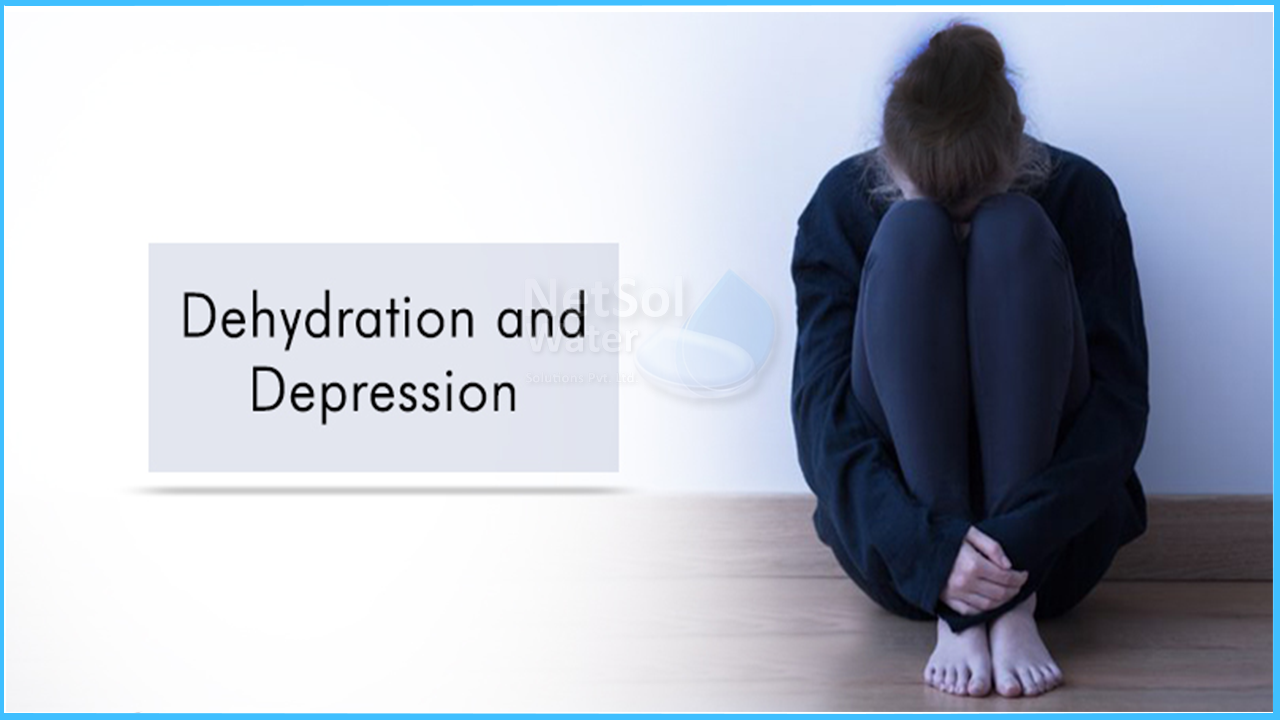There are several approaches that can be used to help manage mental health issues such as depression, anxiety, and PTSD. Counselling, medications, removing stressors from your life, exercising consistently, getting enough sleep, eating a healthy diet, meditation, yoga, and other methods are common approaches to managing mental health. The list goes on and on.
Every system in the human body, including the brain, relies on water to function. In fact, water makes up approximately 75% of brain tissue. Dehydration is linked to depression and anxiety because your brain's activity is the primary driver of your mental health. Dehydration causes brain function to slow down and malfunction.
Therefore, NETSOL WATER advise their customers to think of pure water as a nutrient, their brain needs. For Netsol, our customer’s health is our first most priority, due to which they always come forward with all new equipment which can provide pure water to the customers.
HOW DEHYDRATION CONTRIBUTES TO DEPRESSION?
Depression is a serious mental illness with numerous moving parts in the inter-functionalities of your brain and body. Though it would be overly simplistic to say that dehydration is a direct cause of all types of depression, dehydration and depression are causally linked in many ways. In fact, one of the resulting symptoms of chronic dehydration is depression.
Dehydration causes depression in at least 3 ways:
- Dehydration impairs the production of energy in your brain. Many of the brain's functions that rely on this type of energy become inefficient and may even shut down. Depression is one of the mood disorders that can result from this type of dysfunction.
- Depression is frequently associated with low levels of serotonin, a critical neurotransmitter that has a strong influence on mood. Serotonin is made from the amino acid tryptophan, but it requires a lot of water.
- The number one cause of stress in the body is dehydration. In fact, it's a self-fulfilling cycle: dehydration causes stress, and stress causes dehydration.
HOW IS DEHYDRATION LINKED TO ANXIETY?
Dehydration, like depression, rarely causes anxiety on its own, but not drinking enough water puts you at risk for increased anxiety symptoms now and possibly the development of higher anxiety levels in the future. In short, dehydration causes stress, and when the body is stressed, it can lead to depression and anxiety. As a result, one must ensure that he is properly hydrated on a daily basis, especially if he is naturally anxious.
Panic attacks are a common side effect of dehydration-induced anxiety. Panic attacks are typically triggered by physical factors, one of which is dehydration.
Dehydration can expose people to many of the symptoms that cause panic attacks, including:
- Heart rate has increased.
- Headaches
- Muscle exhaustion and weakness
- Feeling dizzy or lightheaded
WHAT ARE THE SIGNS OF DEHYDRATION?
INCREASED HUNGER: Hunger and thirst signals originate in the same part of the brain, so it's not surprising that they can be mixed up. Even if a person knows he has eaten enough, hunger usually indicates that he needs to drink some water rather than eat more.
HEADACHE: A lack of water contributes to a decrease in the supply of oxygen to the brain, resulting in a headache.
DRYNESS: Dehydration manifests itself in common dryness symptoms such as dry, itchy skin, dry mouth, chapped lips, and so on.
BAD BREATH: Dehydration causes dry mouth, which means your mouth isn't producing enough saliva to fight off odorous bacteria.
CRAMPED MUSCLES: Muscle weakness, spasms, cramping, and other symptoms of dehydration are common.
CONCLUSION
Finally, NETSOL suggests that while staying hydrated is not a cure-all for depression or anxiety, developing the habit of drinking enough water on a daily basis will definitely help alleviate many of the causes and symptoms of mood volatility. So, consider it a viable component of your long-term mental health management strategy.




